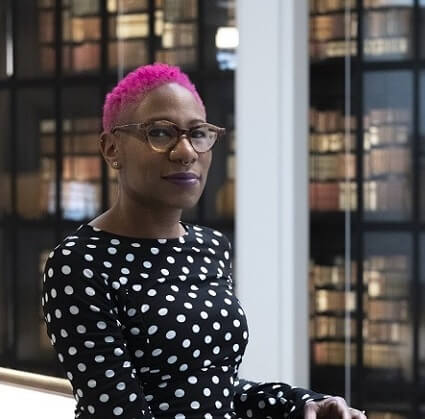In this guest post Adah Paris, chair of Mental Health First Aid (MHFA) England provides insight into how founders can manage workplace wellbeing.
Whether you are a founder or investor it is vital to think about the mental health and wellbeing of everyone involved, including yourselves. The emotional and physical demands of leading a startup require a laser sharp focus on wellbeing.
At MHFA England®, we know productivity and wellbeing fuel each other. We believe organisations of all shapes and sizes, including startups, can purposefully design wellbeing into their business model. As founders and investors, you have an unrivalled opportunity to ensure inclusion, wellbeing and high performance go hand in hand.
Deloitte research showed that employers who invest in mental health make an average return of £5.30 for every £1 spent. Investing in mental health isn’t just about being a good leader or supporting your employees – it’s about protecting your bottom line.
My top tips for supporting yours and your people’s wellbeing to create psychologically safe environments where everyone feels seen, heard and valued, are:
1) Model positive behaviour
As part of our Mental Health First Aid training, we teach learners to be mindful of people’s stress containers i.e. the lower a person’s vulnerability to stress, the bigger their container is. The size of the container is down to lots of factors, including difficult experiences. The more of these issues there are, the smaller the container will be, so it will overflow more quickly than for someone who has a larger container and is therefore able to cope with stress. When the container overflows, difficulties can develop.
This model can be used to check in on our own wellbeing and help us to think about useful coping strategies. For example, making time for self-care, getting rest and asking for help. On the other hand, unhelpful coping mechanisms such as working excessively long hours, self-medicating with drugs or alcohol and not getting enough sleep can become additional stressors to fill the container and block the tap.
Asking for help should be one of the easiest steps to take but often, it can be the hardest. As a founder, you won’t always have access to a formalised HR function, let alone an Employee Assistance Programme. Reaching out to your network, seeking a mentor and being open and honest with family and friends, are all important ways to ensure that your stress container doesn’t overflow. By sharing your concerns, you are also showing that you find certain situations challenging and that it is ok to ask for help.
2) Enable everyone to bring their whole self to work
My Whole Self is MHFA England’s campaign for workplace culture change. We want organisations to empower employees to bring their whole self to work – background, sexuality, religion, gender, health or mental health. By bringing together diversity and inclusion with health and wellbeing, we can drive positive transformation in workplace mental health and performance.
Employees, no matter the size of the business, need to be empowered to bring their whole selves to work and must have support from senior management to do this. This is especially important in startups, as employees are often in smaller teams and know each other well. This brings lots of benefits and can help create psychological safety but, assuming that good working relationships will develop naturally is not enough.
Given how much value managers deliver to organisations in building cultures that support wellbeing and performance, it is important that they have the right tools, time and training to do the job of managing well. We have produced a Manager’s Toolkit which includes resources that equip managers with the confidence to support the mental health of themselves and their teams – and boost productivity.
3) Take the time to talk
Whether you have five, ten or 50 staff, make the time to talk and check in with your team. This can be done both formally and informally, to understand more about what is working well and what isn’t. With the right support, we can all be having constructive, empathetic, and sometimes lifesaving conversations in what many might think are ‘just’ catchups. You can download our free one to one meeting template to help guide you in these conversations.
We know that work ‘done well’ is good for our mental health and that wellbeing and productivity fuel one and other. Focusing on making everyone feel supported and part of a wellbeing strategy that has a razor-sharp focus on building a positive and inclusive working culture is vital to ensure a startups future success.

Adah Paris is the chair of MHFA England. For more information on their workplace wellbeing strategy and bespoke consultancy and training visit the MHFA England website.
Adah has over 20 years of experience in transforming cultures to nurture decentralised humanity-centred innovation environments. She has worked with businesses and individuals in advertising, education, entertainment, entrepreneurship, marketing, media, and technology start-ups.
In 2019, she was recognised as one of TED Talks Global Emerging Innovators. In 2018, she was recognised as one of the UK’s Top 100 Black and Minority Ethnic (BAME) Leaders in Technology.
Adah takes a philosophical and anthropological approach to technology, merging logic and creativity to design immersive storytelling, learning and development environments.

